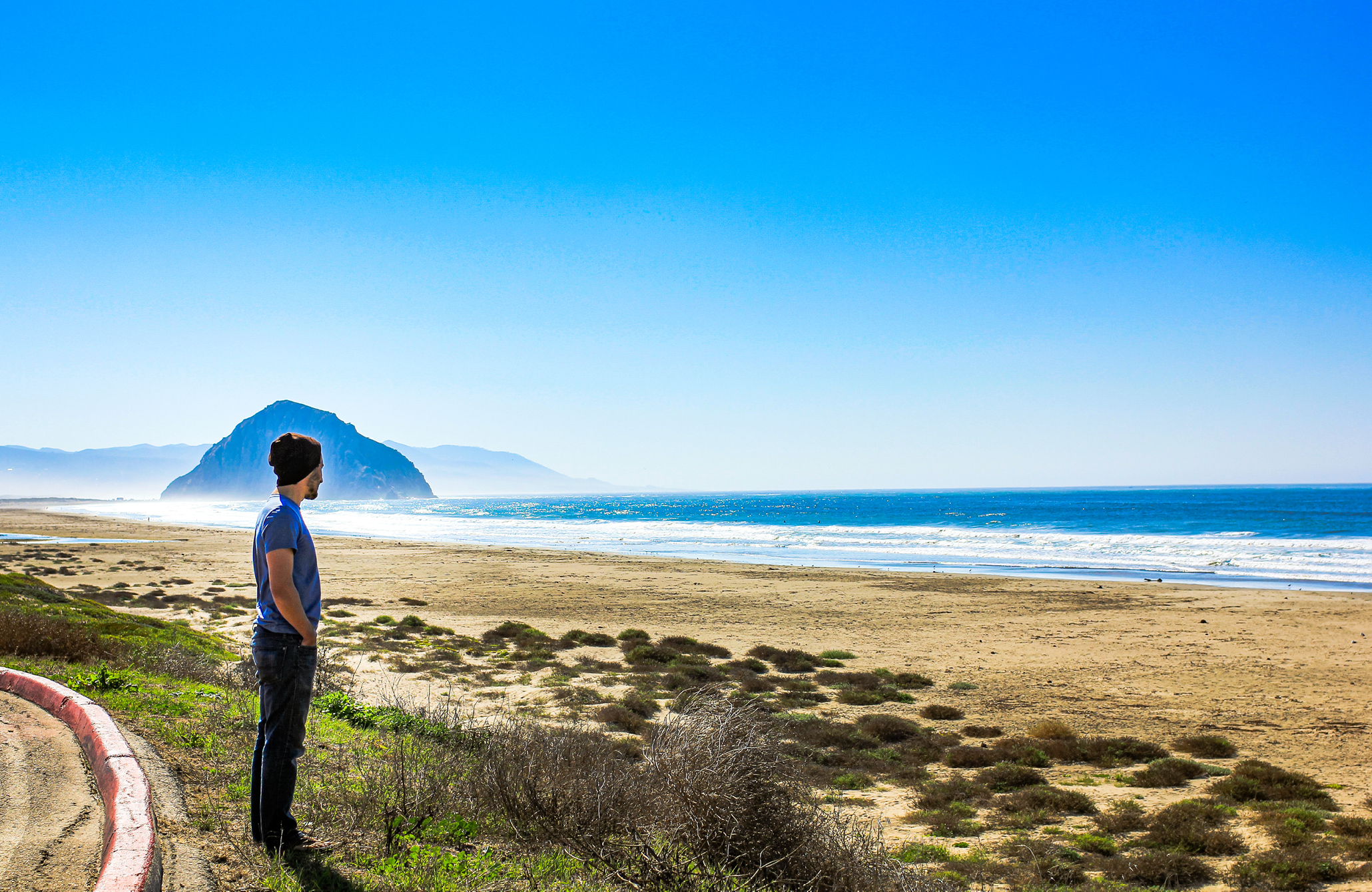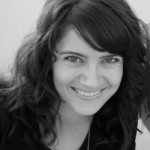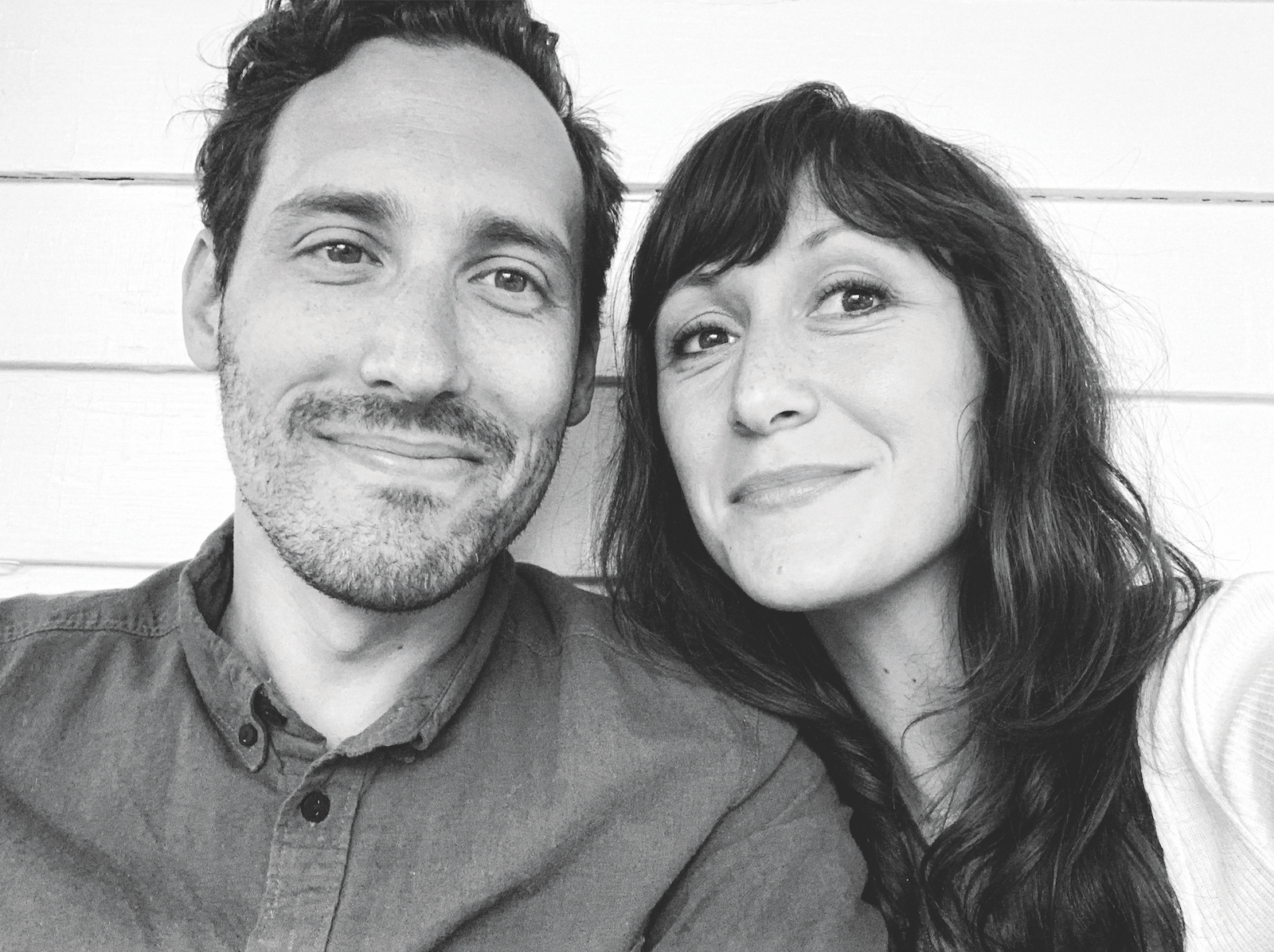
Mikey Master (MACCS ’12) wanted to save the world. Like many young Christians, he participated in a short-term mission trip in college, traveling to Indonesia after the 2004 Indian Ocean earthquake and tsunami to help out. “I don’t know how much helping we did,” he says wryly. In his Fuller courses later, he would learn more about the complex nuances of international development, but that experience, and the country of Indonesia, left an impression on Mikey and his wife, Jeana, who had participated in a similar trip before they married. “It has a special place in our hearts,” he says. When the couple was ready to apply to graduate school to prepare for careers in international development, they chose to attend Fuller—across the country from their Philadelphia home—in order to learn under Professor of Transformational Development Bryant Myers, whose name and work kept popping up in their research.
At Fuller, Mikey and Jeana met a group of fellow students and quickly bonded, living together in a house near campus. They were all passionate about finding work after graduation that would help them change the world, to build shalom, which Mikey describes as “a harmony where everything works for the betterment of others, between people, mental health, personal relationships, business relationships, the earth . . . it’s a symbol for what the world could look like—what the church’s role is in the world.” Even in college, Mikey says, “shalom was a term that made me want to be a person of faith.”
Regularly, Mikey and his housemates invited guests from various organizations over for dinner, so the friends could learn about different opportunities as they tried to discern the next step in their callings as individuals and also as a group. Eventually, they found positions with World Relief in Bali, where they would teach English to refugees and Mikey and Jeana would also serve as communication liaisons with supporting churches back in the States. They committed two years to the positions, but those two years ended up tempering Mikey’s passion with disillusionment as he felt underutilized and frustrated by miscommunication within the organization. “The World Relief leadership didn’t seem to really know we were there,” he says. “It felt like I wasn’t actually doing anything.”
Toward the end of his stint in Indonesia, Mikey started reading The World Is Not Ours to Save by Tyler Wigg-Stevenson, which provided a new perspective. By then, he already knew he couldn’t save the world—plenty of his courses in Fuller’s School of Intercultural Studies had cured him of that notion and educated him on the nuances of healthy, helpful international development. But the book opened Mikey’s eyes to the idea of a for-profit business as a vehicle for building shalom. “There was a part about how you can do so much good in a for-profit business,” he says. The idea appealed to Mikey, who had long been drawn to business, the kind of kid who was always running little side hustles growing up.
There in Bali, a dream started to weave together for Mikey, braiding the strands of his business sense, his lifelong love of cooking, his training as a barista at Fuller’s Coffee By The Books, and his current home in a land dotted with cacao farms. The seed of Triangle Roasters, the specialty coffee roasting and bean-to-bar craft chocolate business Mikey and Jeana would start together, was planted there in Ubud as the couple prepared to return home to the United States.
One day before they left Bali, they toured the cacao farm of a local man, Bapak Pasta. As Mikey and Jeana stood together with the farmer, eating the white fruity flesh out of fresh cacao pods, they shared their dream of starting a coffee and chocolate company. Bapak Pasta responded with wholehearted encouragement: “That would be really helpful to us—we can sell cacao to you for much more than we can sell it to the local market.” Mikey remembers realizing that, as opposed to an international development relationship, where “you have something you’re trying to give someone, which can create a difficult dynamic,” the relationships they could build through a for-profit company could be more in line with the vision of shalom, honoring the expertise of farmers and paying them well for their crops. The conversation with Bapak Pasta on the cacao farm was the confirmation the Masters needed to move forward with their dream.

Joy Netanya Thompson (MAT ’12) is communications senior editor at Fuller. She is a writer focusing on the intersections of theology, motherhood, and pop culture, and has published her work in Sojourners, RELEVANT, Motherwell, and Outreach magazine, among others. Find her at joynetanyathompson.com.

Photos provided by Mikey Master
Mikey Master (MACCS ’12) wanted to save the world. Like many young Christians, he participated in a short-term mission trip in college, traveling to Indonesia after the 2004 Indian Ocean earthquake and tsunami to help out. “I don’t know how much helping we did,” he says wryly. In his Fuller courses later, he would learn more about the complex nuances of international development, but that experience, and the country of Indonesia, left an impression on Mikey and his wife, Jeana, who had participated in a similar trip before they married. “It has a special place in our hearts,” he says. When the couple was ready to apply to graduate school to prepare for careers in international development, they chose to attend Fuller—across the country from their Philadelphia home—in order to learn under Professor of Transformational Development Bryant Myers, whose name and work kept popping up in their research.
At Fuller, Mikey and Jeana met a group of fellow students and quickly bonded, living together in a house near campus. They were all passionate about finding work after graduation that would help them change the world, to build shalom, which Mikey describes as “a harmony where everything works for the betterment of others, between people, mental health, personal relationships, business relationships, the earth . . . it’s a symbol for what the world could look like—what the church’s role is in the world.” Even in college, Mikey says, “shalom was a term that made me want to be a person of faith.”
Regularly, Mikey and his housemates invited guests from various organizations over for dinner, so the friends could learn about different opportunities as they tried to discern the next step in their callings as individuals and also as a group. Eventually, they found positions with World Relief in Bali, where they would teach English to refugees and Mikey and Jeana would also serve as communication liaisons with supporting churches back in the States. They committed two years to the positions, but those two years ended up tempering Mikey’s passion with disillusionment as he felt underutilized and frustrated by miscommunication within the organization. “The World Relief leadership didn’t seem to really know we were there,” he says. “It felt like I wasn’t actually doing anything.”
Toward the end of his stint in Indonesia, Mikey started reading The World Is Not Ours to Save by Tyler Wigg-Stevenson, which provided a new perspective. By then, he already knew he couldn’t save the world—plenty of his courses in Fuller’s School of Intercultural Studies had cured him of that notion and educated him on the nuances of healthy, helpful international development. But the book opened Mikey’s eyes to the idea of a for-profit business as a vehicle for building shalom. “There was a part about how you can do so much good in a for-profit business,” he says. The idea appealed to Mikey, who had long been drawn to business, the kind of kid who was always running little side hustles growing up.
There in Bali, a dream started to weave together for Mikey, braiding the strands of his business sense, his lifelong love of cooking, his training as a barista at Fuller’s Coffee By The Books, and his current home in a land dotted with cacao farms. The seed of Triangle Roasters, the specialty coffee roasting and bean-to-bar craft chocolate business Mikey and Jeana would start together, was planted there in Ubud as the couple prepared to return home to the United States.
One day before they left Bali, they toured the cacao farm of a local man, Bapak Pasta. As Mikey and Jeana stood together with the farmer, eating the white fruity flesh out of fresh cacao pods, they shared their dream of starting a coffee and chocolate company. Bapak Pasta responded with wholehearted encouragement: “That would be really helpful to us—we can sell cacao to you for much more than we can sell it to the local market.” Mikey remembers realizing that, as opposed to an international development relationship, where “you have something you’re trying to give someone, which can create a difficult dynamic,” the relationships they could build through a for-profit company could be more in line with the vision of shalom, honoring the expertise of farmers and paying them well for their crops. The conversation with Bapak Pasta on the cacao farm was the confirmation the Masters needed to move forward with their dream.
Joy Netanya Thompson (MAT ’12) is communications senior editor at Fuller. She is a writer focusing on the intersections of theology, motherhood, and pop culture, and has published her work in Sojourners, RELEVANT, Motherwell, and Outreach magazine, among others. Find her at joynetanyathompson.com.
Photos provided by Mikey Master


But when the couple moved back to Philadelphia, they were expecting their first child and didn’t have the capital to start a business. “So we just tried to dream about it,” Mikey says. He earned his real estate license, planning for a career that provided both a livelihood and a flexible schedule to start taking steps toward opening Triangle Roasters. The Masters also teamed up with another couple who shared their dream of building shalom through business. Mikey and Jeana started roasting small batches of sustainably sourced coffee in their home, then Mikey would deliver bags of fresh coffee to a list of friends and other subscribers who came to Triangle through word of mouth. “I was like the milkman of coffee,” Mikey jokes. He delivered coffee that way for five years.
Today, Jeana roasts batches of coffee and cacao two days a week in a factory space they rent in Philadelphia. They don’t want to stop there, though. Mikey’s dreams for Triangle Roasters include scaling the business so they can employ refugees or individuals coming out of prison, creating a training program like those of Homeboy Industries in Los Angeles or Rosebud Cafe in Pasadena.
The passionate drive to save the world is still there, and one that Mikey wrestles with as he takes measured steps toward growing a business that can build shalom in the world. “To be really sustainable takes time,” he says, though a sense of urgency still pulls at him. “There’s so much pressure to make Triangle Roasters perfect and to be giving away tons of money and employing refugees and people just out of prison,” he says, talking fast, giving a glimpse into his running inner monologue. “We need to be doing that right now—why aren’t we doing that?” He admits it’s hard to put a stop to those types of narratives. Recently, though, Mikey has found solace in a poem called “Clearing,” by Martha Postlewaite. “Do not try to save / the whole world / or do anything grandiose,” the poem begins. Instead, one must wait patiently in a “clearing of the dense forest” of one’s life “until the song / that is your life / falls into your own cupped hands.”
After reading the entire poem aloud, Mikey looks up, clear-eyed and smiling. “It just kind of takes off the pressure,” he says. “If everybody was doing something authentic, whatever that would be, from being an accountant to being a chocolate maker to working for World Vision, if everybody was really authentic doing the things they were passionate about, and were thoughtful and open to the world’s pain . . . ” he trails off dreamily. “I don’t know, I think it would be better.”


“I’m a real estate agent, and I make chocolate, and I try to sell coffee and chocolate, and I try to build a business,” he summarizes. “To me it feels like a really good thing to do in the world. But at the same time—is it good? So that poem tells me, yes! Just relax.”
When people ask Mikey what the team is trying to do with Triangle Roasters, he answers, “We’re just trying to do something meaningful and beautiful; we want to celebrate people who work really hard and have this crazy expertise at growing these hard-to-grow crops.” That’s what the name Triangle stands for, he points out. “Triangle is a symbol of being connected. Ourselves, the people who grow the food, and the people who eat it.” The dream he and Jeana carried home from Bali is coming true, as they roast coffee and make chocolate and sell it to subscribers, coffee shops, and grocery purveyors.
For him, it all comes together when he’s practicing the artistry of making chocolate, inventing new recipes and smelling the chocolate as it melts. “Last week I made a raspberry white chocolate, and I put dark chocolate in it, and that felt—” Mikey beams and starts laughing at the memory that clearly brings him delight. “That felt really good. We made that! That came out of our brains! It honors someone’s really hard work.”
“Someone labored very hard to grow green coffee and cacao,” he says, acknowledging his position near the end of the chain that starts with farmers like Bapak Pasta growing the crops and includes many steps before preparing a chocolate bar that’s ready to eat. “When you get to the end of that chain and someone can have a moment of presence with that coffee or chocolate . . . I feel like we’re doing something good.”
In a turbulent season, chaplains Brenda Bertrand, Kevin Doi, and Inés Velásquez-McBryde offer a ministry of presence and hope to the Fuller community